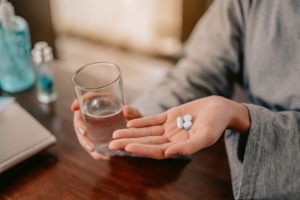Substance abuse is not limited to accidental overdoses or use by those seeking a high or an unhealthy high. It is crucial to detect the indications of an overdose and act immediately to reduce the effects. It is important to get medical help as soon as possible, regardless of how the overdose happened. Someone can take too much prescription or swallow something they shouldn’t have.
Over 100,000 Americans died of drug overdoses in 2021, according to the CDC. The data in this analysis are concerning since they imply that the trend will only accelerate in 2022. The article will examine the signs of an overdose, overdose effects, and overdose treatments.
Precisely What Does It Mean When Someone Overdoses?
How do people overdose? When too much substance is in the bloodstream for the body to process, overdosing occurs. When faced with a potentially damaging situation, the human body will respond and take measures to mitigate the damage. Still, there is a threshold beyond which the body cannot detoxify, leading to serious health risks.
The purposeful or unintentional administration of an overdose is possible. Physical severe symptoms can manifest after an overdose, such as difficulty breathing, convulsions, coma, or death.
What Are the Symptoms of an Overdose?
Extreme symptoms emerge after an overdose because the brain stops receiving enough oxygen. However, several universal indicators of overdose usually manifest regardless of the chemical or dosage involved.
Some examples of these overdose symptoms are:
• Problems breathing
• Sweating or drying out of the skin.
• Diarrhea
• Vomiting
• A state of disorientation or incoordination
• Loss of awareness or passing out
• Dull or reddened complexion
• A rise or fall in core body temperature
Meth Overdose Symptoms
Acute or persistent symptoms may follow a meth overdose. An acute overdose happens when someone takes a significant quantity of meth all at once, which can be lethal. Chronic meth overdose, which occurs as a consequence of prolonged meth usage, is potentially fatal in and of itself.
Meth Overdose can cause a variety of symptoms, including:
• Convulsions
• Pain in the chest
• An ache in the guts
• Heart failure
• Problems breathing
• Chronic hypertension
Symptoms of Heroin Overdose
Overdosing on heroin happens when a person uses too much of the drug. An overdose of heroin is very dangerous and must be treated immediately. Please consult a doctor as soon as you notice these signs and symptoms.
A heroin overdose is characterized by shallow breathing, gasping for oxygen, a lack of color in the face, and a bluish tinge to the lips and fingers. If someone has stopped breathing, it can indicate a heroin overdose. Characteristics of a heroin overdose include pinpoint pupils, reduced blood pressure, a tongue that has lost its color, a weak pulse, and disorientation.
Symptoms of Cocaine Overdose
When a user ingests sufficient amounts of cocaine to have toxic effects, we say they have overdosed. An overdose will create a strong response, albeit the severity may vary depending on the individual and their tolerance for poisons.
Experiencing an overdose of cocaine manifests itself physically with symptoms including chest discomfort, rapid heart rate, tremors, nausea, vomiting, and a high fever. Cocaine overdose may also cause mental problems. A friend’s anxiety, delirium, panic, or paranoia might all be symptoms of an overdose.
Symptoms of Opioid Overdose
Overdosing on opioids can be fatal; therefore, treating signs of opioid abuse through opioid rehab is crucial. The risk of overdose is high when people are abusing opioids. Anoxia, or a lack of oxygen in the brain, is a common side effect of opioid overdose.
These symptoms are often seen in people who have overdosed on opioids:
• The lips and toes can be a vibrant shade of purple or blue.
• collapsed or slowed heart rate
• Light eyes that seem to go on forever
• Unconsciousness
• Vomiting
What Are Some Overdose Treatments?
Overdosing is possible even with a single use of a chemical. The ideal treatment plan can be developed after thoroughly evaluating the patient’s drug abuse background. Most persons who overdose have a history of drug abuse, making therapy crucial for discovering why the abuse started. Furthermore, it can aid in the diagnosis of any comorbid conditions that can be contributing to the user’s persistent substance abuse.
An overdose is a medical emergency, no matter the drug, and time is essential in treating it. The patient’s life may be saved by hospital measures, including charcoal therapy, gastric lavage, and intravenous fluids after they’ve been hospitalized.
If someone overdoses, they need to get to the hospital immediately. Naloxone, which first responders administer, can alleviate the respiratory distress caused by an opioid overdose. Even if Naloxone is administered by a peer or loved one, the victim must seek medical attention immediately.
In the Event, Someone Overdoses, What Should One Do?
One shouldn’t turn a blind eye if an acquaintance overdoses on drugs. Please dial 911 immediately so they can get the help they need. Keeping them awake by chatting is a good idea if they are conscious. Even if someone suspects an overdose has occurred, they shouldn’t leave the victim alone since they can be seriously hurt.
It is essential to stop worrying about how to explain the situation to first responders or loved ones. It is important to get the overdose victim help regardless of the potential consequences.
If you want to assist your friend, you need to tell the truth to the medical staff treating them. You can face legal consequences if you make false statements or conceal facts.
Bellagio Treatment Center
Don’t turn a blind eye if you find out that an adult younger person is engaging in drug experimentation. Drug addiction is a vicious cycle that is difficult for teenagers to stop. Substance abuse is connected with several mental, emotional, and social consequences. There are many potential adverse outcomes associated with drug usage, and overdose is only one of them.
As a facility, Bellagio’s mission is to facilitate our client’s sobriety. Help them get the resources from our seasoned relapse preventionist that they need to support their recovery right now and in the future. Substance abuse treatment can be crucial to prevent drug overdose.
To assist our clients in overcoming their addiction, our staff of qualified specialists uses cutting-edge therapy strategies informed by the latest scientific findings and a 12-step recovery framework. We work with our clients to build the foundation for long-term recovery. Please contact us today to learn more about the treatment options available for a drug overdose.




